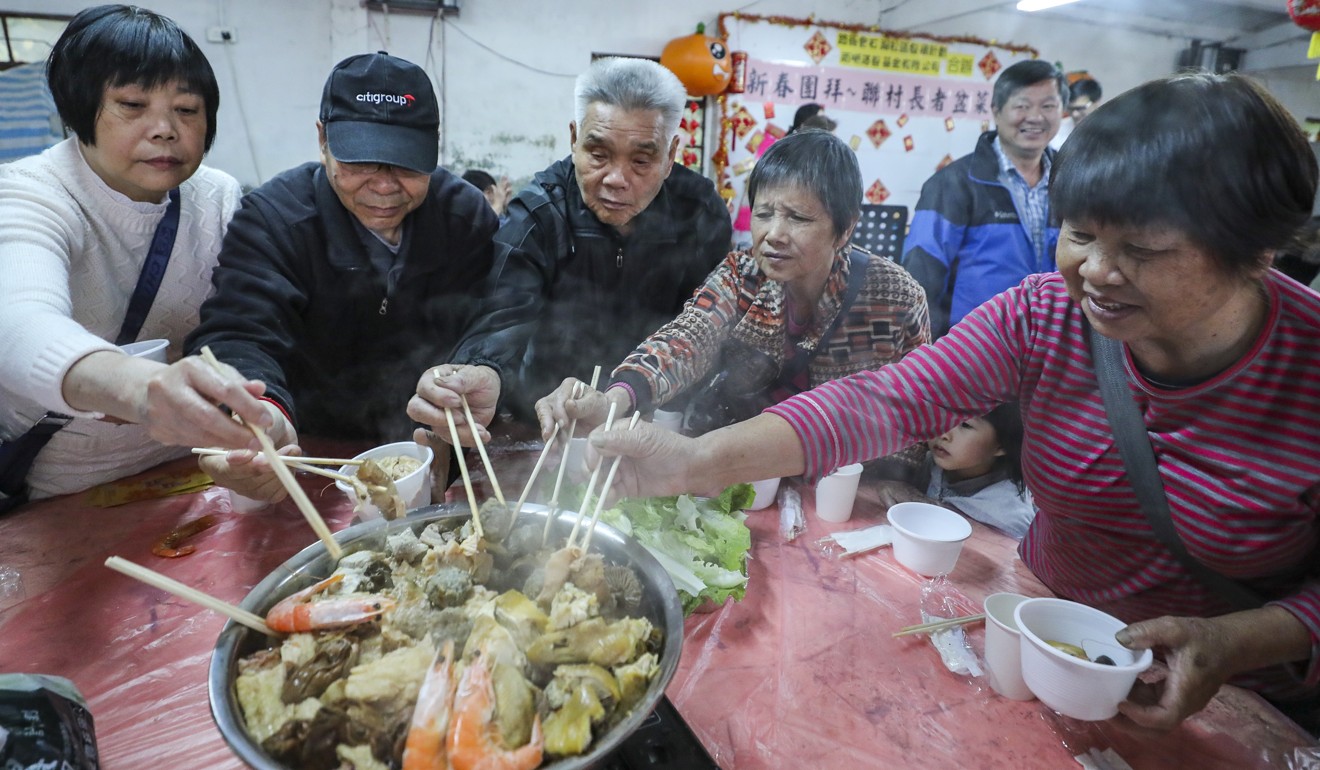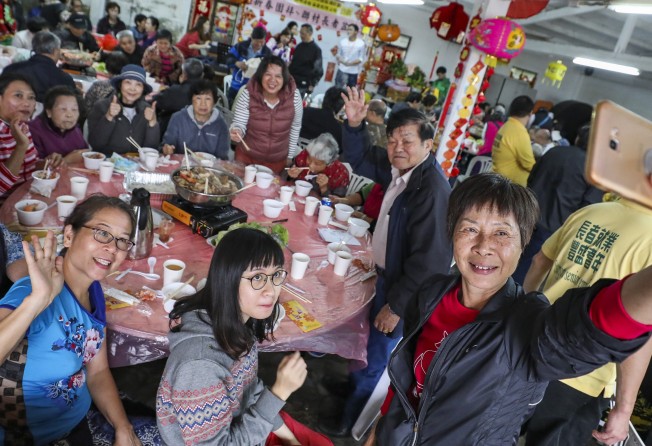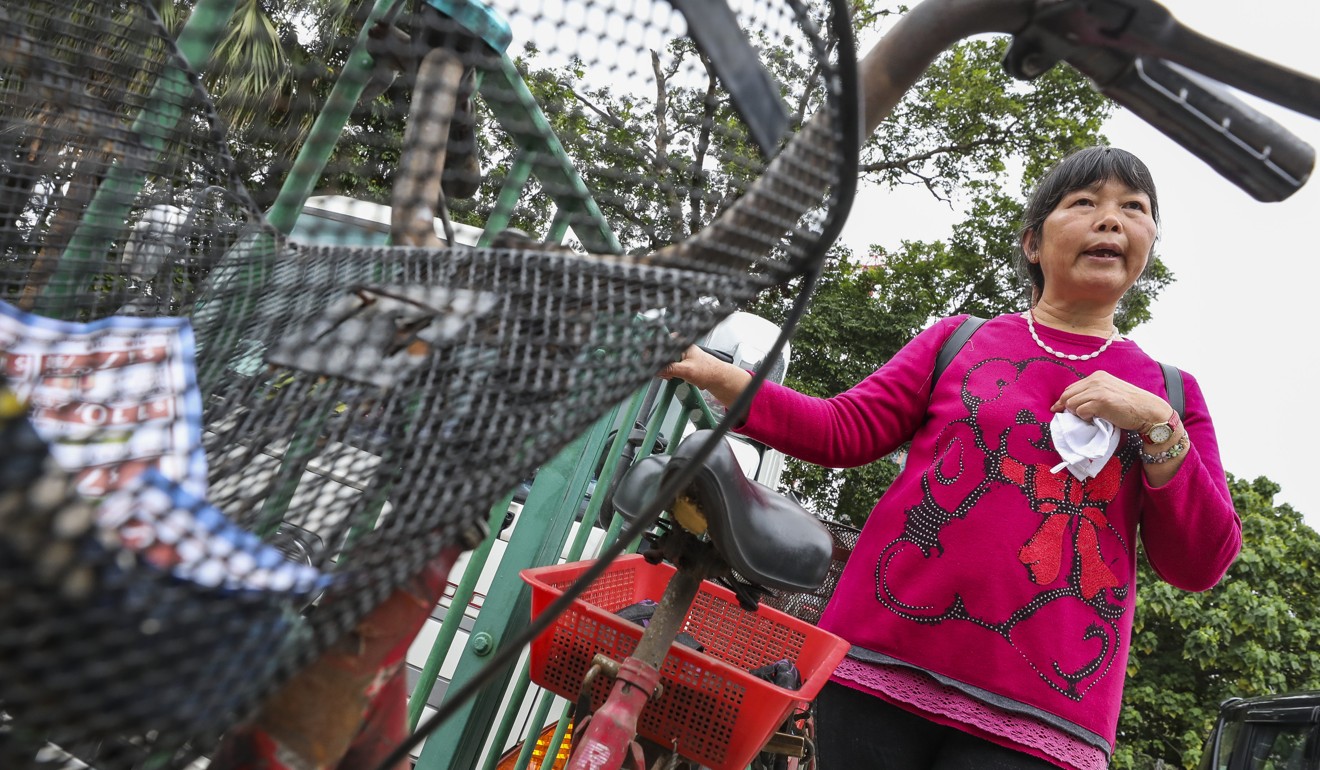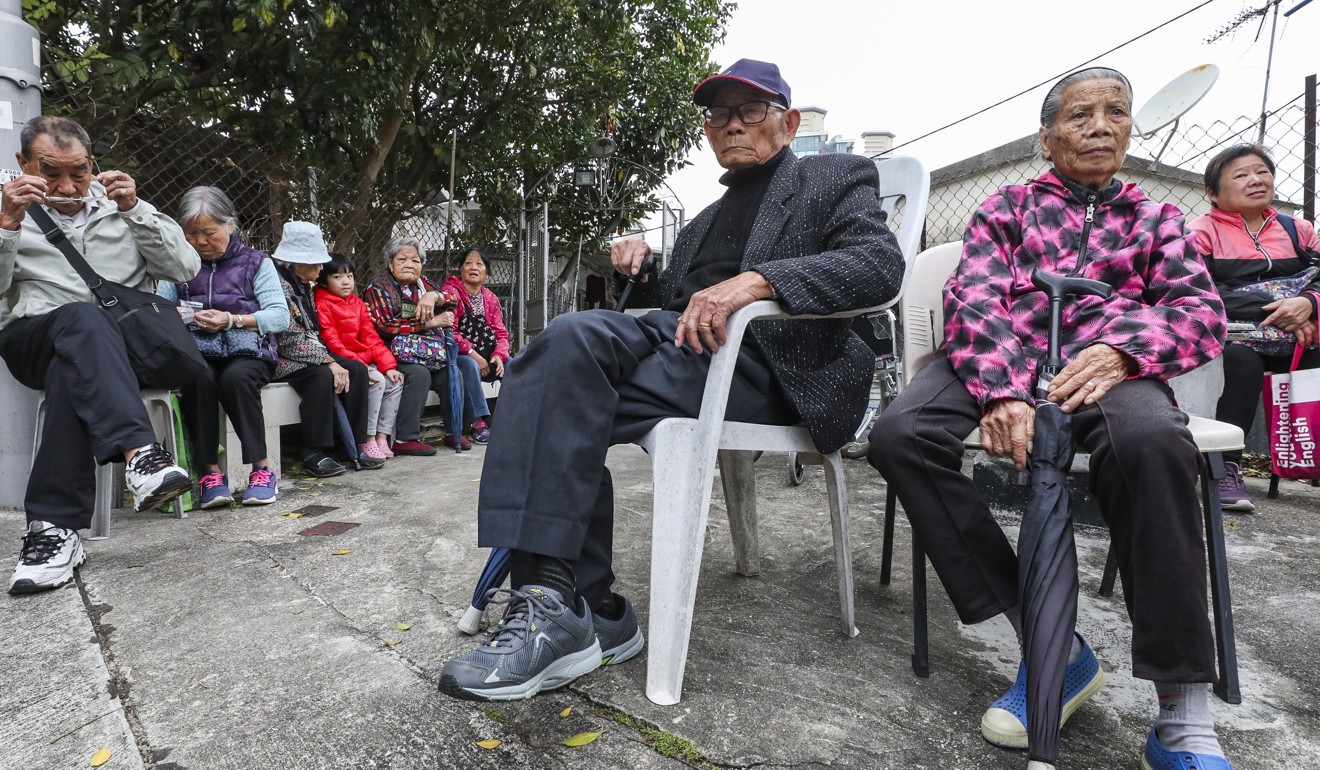
Villagers facing eviction under Hong Kong new town projects enjoy final new year banquet together
- At least four of five villages which are part of annual event will be affected by government’s Kwu Tung North and Fanling North development
- Some residents express concern for their elders, who may not take well to relocation, while most lament the loss of close community ties

As diners poured tea, laid chopsticks and exchanged red packets, 60-year-old Chan Oi-ling wondered if she would miss the warmth of what could be their final feast.
She was among some 100 elderly residents from five villages in northern Hong Kong who attended their annual Lunar New Year banquet on Saturday.
But Chan’s village, Ma Shi Po in Fanling, will be affected by the first phase of the government’s Kwu Tung North and Fanling North new town development, which means residents could be evicted as early as the second half of the year.

“The banquet is for squatter villages in north Fanling, but this year, people in our village will have to move to new places and get used to the new environment,” Chan said wistfully. “We will gradually grow apart, and we will never come back.”
The decades-old new town projects, which the government this year promised to push through, will displace some 1,500 households to provide 71,800 flats by 2031. The move is one of the measures to increase housing supply for a city crippled by unaffordable properties and overcrowding.
Four of the five villages joining the banquet are at least partly affected by the projects – besides Ma Shi Po in the first phase, the remaining stage will see most of Shek Wu San Tsuen, half of Tin Ping Shan and a third of Fu Tei Au bowing to development.
Some 400 out of 600 households in the four villages will be evicted. Ling Shan village, where the banquet was held, is spared.
Chan, who has been living in Ma Shi Po for three decades, said she would sorely miss the close connections among residents in the area.

“I dread ending such relationships so much sometimes that I wake up crying in the middle of the night,” she said. “In the villages, we celebrated together whenever someone’s relatives or friends visited, and kids ran around asking for treats from everybody.
I dread ending such relationships so much sometimes that I wake up crying in the middle of the night
“Whenever it rained, there would be a chorus of frogs and toads accompanying me on my way home,” Chan said with a smile, and imitated the croaks of the amphibians.
Ho Wai-kee, an 84-year-old resident of Shek Wu San Tsuen, said the villages were a tight-knit community. One of his best friends is a Ma Shi Po resident.
“The new year banquet will no longer be the same with one village short,” he said. In a few years, his own home will also face relocation. “My biggest wish is that the government can give us a place in the new town so we can all continue to live together.”
My biggest wish is that the government can give us a place in the new town so we can all continue to live together
Lee Muk-yuen, 66, is one of the affected residents in Fu Tei Au village. He echoed Ho’s views and suggested that the government build a “north Fanling elderly centre” so those from the older generation, who might not take well to a new environment, could stick together.
“The new town development is a good thing, and our villagers are willing to sacrifice for the interests of society, but we hope the government can relocate us before evicting us,” Lee said.
Under the government’s compensation package, those who have lived in a licensed squatter home for at least seven years and have not owned any other property can choose to move to a housing estate planned nearby, without the need for a means test.

The estate is expected to be completed by 2023 at the earliest. Before this, the government will provide transitional flats for eligible families.
For those who can prove they have lived in their licensed squatter homes for two years continuously and have not owned any other property, they are also eligible for a cash allowance of between HK$60,000 and HK$1.2 million (US$153,000), based on the sizes of their homes and how long they have lived there.